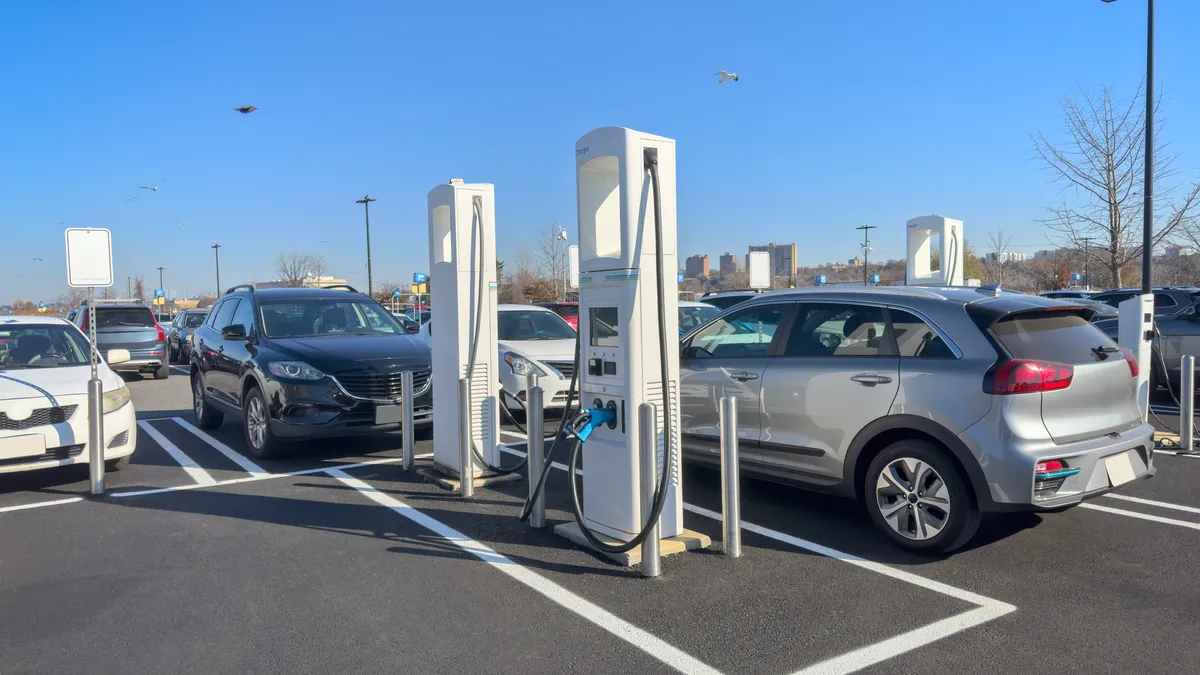Jay Smith is executive director of Charge Ahead Partnership
If someone declares debate unnecessary, it is often a dead giveaway that the facts are not on their side.
The “debate is settled” tactic seems to have become popular among electric utility executives who are tired of the public questioning why a power company should use ratepayer funds to build, own and operate electric vehicle charging stations.
Unfortunately for utility executives, simply declaring victory is not a valid response. Policy battles have revealed powerful electric utilities, while excellent at generating and distributing electricity, are often the worst candidate to open up EV charging businesses.
That is not a critique of electric utilities, as much as it is an acknowledgment of the system where they operate. We grant publicly regulated utilities certain privileges in exchange for reliability and affordability. When they try to leverage that privilege to corner a new market, they deserve plenty of pushback.
It is worth asking why utilities are so determined to use your money and mine to build, own and operate EV chargers. One term utility executives rarely mention when discussing EV chargers is “return on investment.”
If you are a private business owner offering EV charging, you have no guaranteed return on your investment. You could misjudge demand for your charger, provide bad service or not meet customer expectations. In that case, the $150,000 you sunk into an EV charger is money lost.
But if you are an electric utility, the more you build, the more you make – regardless of demand, service or customer satisfaction.
Regulated utilities recoup a guaranteed return on investment, which averaged 9.7% in the first half of 2023, according to S&P Global. When the power company unveils their “green initiative” to “invest” $100 million in building, owning and operating EV charging stations, that means the power company is spending $100 million of ratepayer money to make a guaranteed $9.7 million.
With a guaranteed return on a new service, power companies can undercut any competition, selling power to EV drivers at rates no private business could match. In Maryland, 248 of the 262 utility-owned charging stations operate at a loss. But that doesn’t mean the power companies lose money – it simply means that everyone in Maryland pays higher power bills to make the utility enterprise profitable, while also discouraging entrepreneurs and innovators from ever opening an EV charging station.
As a society, we debate when and where it is appropriate for the public to subsidize a good so that it is affordable for a specific (usually less-privileged) group. And raising grandma’s power bill so that a wealthy EV driver can charge up on the cheap is not popular, no matter what you hear from the Alliance for Transportation Electrification, a consortium including the nation’s most powerful utilities.
The ATE includes Xcel Energy, one of the most vocal and aggressive utilities seeking control of the EV charging marketplace. Their track record is instructive: In Minnesota and Colorado alone, Xcel has lobbied to raise power bills by a combined $342 million in just the last year in order to corner the EV charging marketplace.
Utility lobbyists and executives in both states promised an EV charging utopia overnight, if regulators would just grant them permission.
But then the residents of these states realized two things:
- Xcel wasn’t paying for these chargers; Xcel was getting paid for these chargers. Letters poured into normally-staid public utility commissions, decrying Xcel for using ratepayers to subsidize its new business enterprise.
- Xcel was good at raising rates, but not so good at actually following through. The utility had previously gotten permission to build, own and operate 54 chargers in Colorado, Minnesota and New Mexico since 2019, As of this summer, the utility had completed 0.
Anyone who cares about EV charging in America should raise serious questions about the likelihood of utilities quickly building and properly maintaining chargers. Eliminating all competition can also eliminate any sense of urgency.
But utility executives don’t want you asking such questions, even if they cloak their objection in business jargon, as Philip Jones, executive director of the ATE, did in a recent Utility Dive story.
Jones said that power companies generate the electricity and build the power lines that would allow someone to sell EV charging, so the power company should get to control the market.
Is that truly the role we want utilities to play? Should the private marketplace cede control of any future technology that requires large amounts of electricity to Florida Power and Light, Pacific Gas and Electric, Southern Companies and others?
Instead, we should encourage the utilities to focus on their strength — generating and distributing electricity. Allow the private market to build, own and operate EV charging stations, free from utility-driven market interference.
A free-market and competitive approach has proven again and again to yield better results, which in this case would mean a robust and reliable EV charging network. It may take a policy battle to get there, but some things are worth fighting for, and some debates aren’t settled.






















